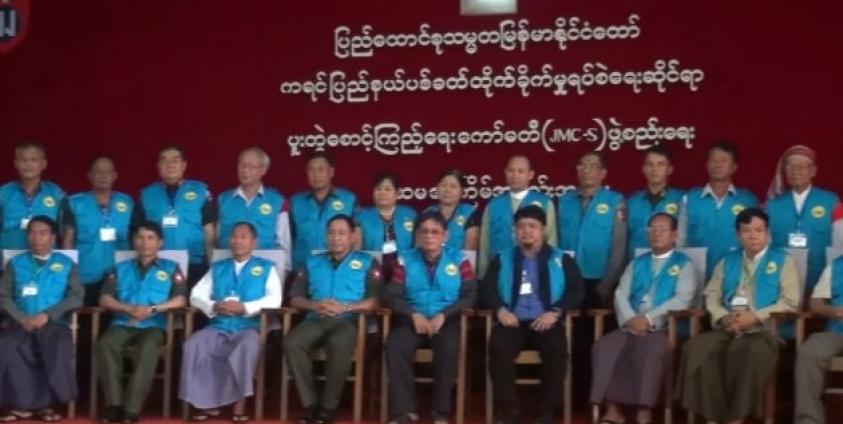Karen State based political parties and civil society groups said that they are not invited to take part at the state level Joint Monitoring Committee-State Level (JMC-S).
The state level JMC-S was formed with 16 committee members at the headquarters of the Burma Army 22 Light Infantry Division in Hpa-an on the 29th of June, 2016.
Saw Kyaw Swa, of the Karen Peace Support Network said, “As far as I know since the government formed it, Civil Society Organizations are not invited. The invitations have been restricted to their ‘friends’. No one on behalf of the CSOs was invited.”
Although official invitation were not sent to political parties and CSOs, some members of the JMC-S are from political parties. CSOs and political parties sources criticized this as the appointments to the JMC-S committee was related to personal connections.
There are four civilians in the JMC-S with the remaining from the Karen armed groups, government officials and the Burmese military.
In response to the critics, Dr. Shwe Kar, secretary (1) of the Union Level Monitoring Committee, (JMC-U) said, “I felt very sorry that political parties and CSOs haven’t been invited. It is the responsibility of the military and Karen National Union. We found out just as we arrived. There were people who should have been included. This is a result of the weakness of the officials who arranged the meeting.”
This is not the first challenge the JMC-S faced, in early July the JMC-S in the Tanintharyi Region vice-chairperson submitted a resignation letter.
Colonel Saw Mu Kae, operations commander of the Karen National Liberation Army 4th Brigade who is also vice-chairman of the Tanintharyi Region JMC-S submitted his resignation letter over a territory control dispute.
The Taninthari regional level JMC-S was the first State or Regional level JMC to be formed on June 25, composed of 14 members including government, KNU and civilian delegates.
Tension between the KNLA and Burma Army increased over a KNU checkpoint at Htee Khee, in Megui/Tavoy District [Tanintharyi Region] when the local Burma Army commander ordered the KNU to leave.
Col. Saw Mu Kae was displeased over irregularities used to solve the Htee Khee dispute. Col. Saw Mu Kae said in his resignation letter that it was better he just concentrated to govern his troops than being involved with JMC-S when JMC-S is being used incorrectly.
Dr. Min Zaw Oo, the director of JMC-U, said that in forming the JMC-S, there must be five delegates each from the government and the ethnic armed groups and two civilian delegates that are nominated by both sides.
The responsibilities of the members of JMC-S are to make sure both sides follow the military affairs, military ethics and the rules and regulations of the Nationwide Ceasefire Agreement. According to the guide book for implementation of the NCA, the JMC-S also helps solve arguments between armed groups.








